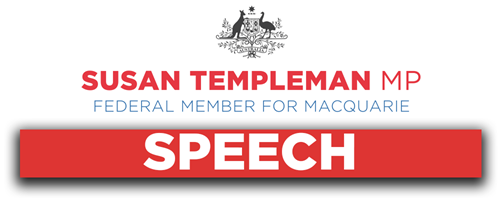 Miscarriage, Stillbirth and Neonatal Death
Miscarriage, Stillbirth and Neonatal Death
I'm at the stage of life when a lot of my children's friends are thinking about babies, having babies or trying to have babies. It's a time of great joy to my peers, the grandmothers and grandfathers. But it also means that I'm hearing of young women who are losing babies during pregnancy, and that makes it a time of real sadness and despair for some. While shifting attitudes mean that it's more likely to be spoken about now than when I was young, that doesn't change the pain that the loss brings.
No-one knows exactly how many miscarriages occur in Australia each year, but it's estimated that one in five confirmed pregnancies end in a miscarriage, and that's about 110,000 every year. Miscarriage or early pregnancy loss, which is the loss of a baby before 20-weeks gestation, are the most common complication of pregnancy and can be devastating and traumatic for women, their families and their support people. It's not hard to imagine how it can have lasting impacts on a woman's physical and mental health throughout her life. Devastatingly, one to two per cent of Australian women will experience three or more consecutive miscarriages, and that brings a lot of pain.
This is an area of health care where there's still a shortage of data and information, as well as still too much silence. I don't think it's a coincidence that a party with more women than men in parliament is building on what has already been done in the past to continue to try and change that. The last budget dedicated funding of $9.5 million over four years to improve the care and support provided to women and families who experience miscarriage and early pregnancy loss. It's things like a million dollars over two years for the Australian Institute of Health and Welfare to undertake a miscarriage data scoping study. The study will support work to better understand miscarriage and help improve the support offered to women and their families. There's funding for a national audit of the Early Pregnancy Assessment Service clinics, with the aim of improving information on the EPAS clinics so GPs and other health professionals can ensure that women experiencing pregnancy loss or other early pregnancy complications are referred to specialist services where that's feasible. It's things like $1.5 million to develop miscarriage education and awareness resources, including a public awareness and education program. It's $5.5 million over four years for frontline miscarriage support services to provide evidence based, culturally-safe bereavement care and support to women and families who've been impacted by miscarriage. I hope that through these measures we have a better understanding of pregnancy loss and can better support women and partners experiencing it.
The work of this parliament also continues supporting women experiencing stillbirth. Stillbirth can also be a horrible thing for women and their families to go through, resulting in ongoing grief, anxiety and depression, as well as the social and financial impacts. Australia is one of the safest places in the world to give birth, but, even so, around six babies are stillborn, and two die within 28 days of birth, equating to around 3,000 perinatal deaths per year. That's a lot of families who've lost their child. In 2022, there were 297,725 babies born in Australia, and 2,357 of these were stillbirths. While any pregnancy can result in stillbirth, rates remain higher among First Nations women, CALD communities, migrant and refugee groups, women living in rural and remote Australian and women younger than 20 years.
Australia has become a world leader in stillbirth awareness and prevention thanks to the work of many previous governments and leads the way in supporting parents and families. But there is still more to do. The evaluation of the stillbirth action plan from a few years ago shows that there have been concrete developments in prevention. Healthcare professionals are more consistent in offering investigations, but we know there's more to do. I know that, across the parliament, there's a deep commitment to ensuring we keep improving in this area.


